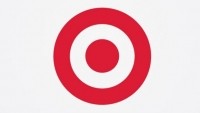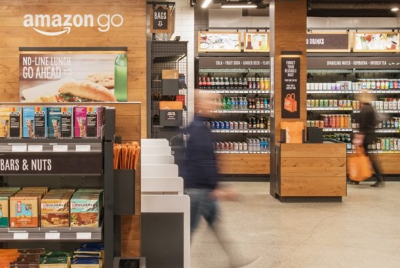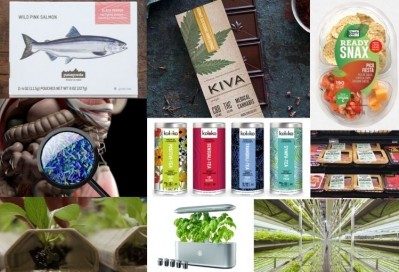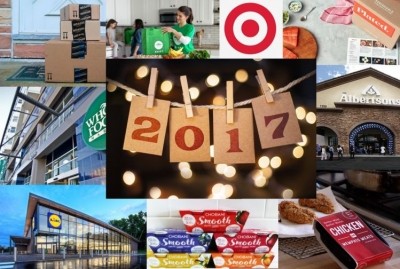Target’s plan to acquire Shipt a 'logical move,’ say analysts, but food offer is still confused
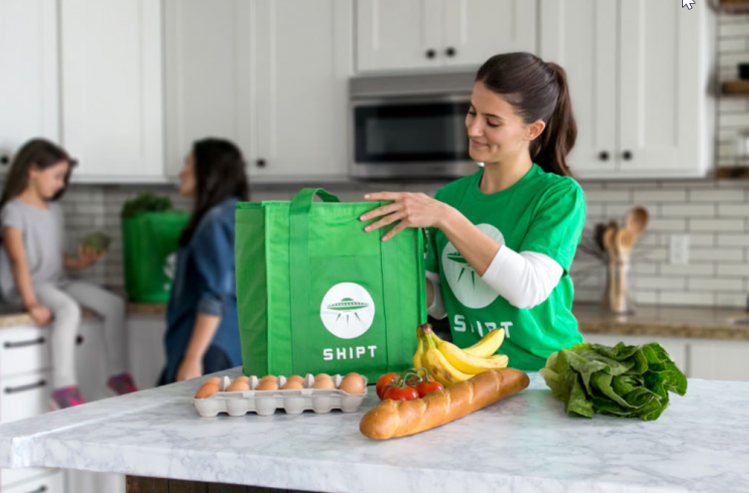
While partnering with third parties such as Shipt or Instacart has enabled retailers to tackle the last mile without investing in their own fulfilment and delivery systems, it has involved a loss of control over branding and customer experience, both during the ordering and delivery process (it's not your brand the consumer sees).
By buying Shipt, said Leon Nicholas, SVP retail insights at Kantar Retail, Target can overcome these issues to some extent and will likely "Targetize Shipt" to establish a clearer connection with its brand.
However, it's not clear - longer term - how the acquisition would impact Shipt's relationship with other retailers it currently partners with, said Nicholas.
"Shipt has insights into the purchase behaviours of other retailers, and if I am another retailer, I would not want to share those with a key competitor, and would think, I need another partner."
Strategically, it made sense for Target to partner with a player in the on-demand space, however, he said: "They didn't have the in-house capability to achieve last mile fulfilment, so it's a smart move, but whether Shipt will be able to retain its relationship with other retailers remains to be seen."
A logical move
The deal “gives Target the infrastructure and operational capacity to grow its market share in the online grocery channel,” added Neil Saunders, managing director of GlobalData Retail.
“This is currently a segment where Target underperforms, a position that is not sustainable given the increasing popularity of buying food online."
Second, he said, “bolstering growth in grocery allows Target to improve sales volumes which are necessary to support economies of scale and margins. This has become particularly important because of Target's focus on low prices.”
Third, the new platform will allow Target to offer same day delivery on a wide selection of non-food items, which makes the grocery service more attractive to consumers, and will increase the profitability of the Shipt business model, claimed Saunders.
That said, this deal – expected to close by the year-end - does not change the fact that Target “has a lot more work to do in developing a clear proposition in grocery,” he argued. “In our view, while improvements have been made, the position and points of differentiation are still not refined. Getting these right is the real key to growth.”
While Target has been trying to get its food offer right for years because it recognizes that it is a traffic driver, added Nicholas, it hasn't been able to crack the code, and has struggled to define what kind of food retailer it wants to be.
Ultimately, he said, it may make sense for it to partner with another food brand and outsource the food operation to that brand (Sprouts, Fresh Market etc) so that it can focus its energies elsewhere. "They have really tried to make food work, but they have taken their eye off the ball; their fundamental differentiator is private label and apparel."
What does the deal mean for Instacart?
So what does this deal mean for the wider market?
Jerry Sheldon from IHL Consulting Group, told FoodNavigator-USA that Target's move was "further confirmation that same day grocery delivery has to be at the forefront of every grocer’s strategy."
He added: "Target is obviously facing pressure from both Amazon and Wal-Mart, as Wal-Mart ups it’s ecommerce game against Amazon, it extends pressure in the grocery space with Target and others. Amazon has its deal with Whole Foods, and rumored interests in 7-11. Its real interest in 7-11 may be predicated upon what it does or doesn’t do with the Amazon Go concept which has been pretty quiet this year.
"It will be interesting to see what Shipt’s current grocery partners such as Costco and Meijer do. Shipt services more than 70 markets, but Amazon Prime is available to over 8,000 cities, though Target has over 1,750 stores.
"As for the future of Instacart, it probably makes them a bit more interesting and valuable to some of the larger grocers such as Kroger, Costco, and Safeway."
"Until Target gives consumers a real reason to visit for food, they will continue to be at risk ... large demographic group of consumers are looking for low prices. For those shoppers, there’s Walmart. Other psychographic groups are looking for premium fresh food.
"For them, there’s Whole Foods and Sprouts. Where does Target fit in? Target has yet to figure this out."
Barb Stuckey, president and CIO, Mattson
Barb Stuckey: The upside is huge
Barb Stuckey, president and chief innovation officer at product concept and development specialist Mattson, and a self-confessed "die-hard Instacart shopper" who believes the "upside is huge for this type of business," said that by acquiring Shipt, rather than simply partnering with it, Target could "overcome the biggest downside to retailers of working with a 3rd party shopping service: the loss of the consumer relationship."
She added: "While Target says it will allow a newly-acquired Shipt to operate independently, it’s obvious that they’d benefit from all the growing pains, learnings, and data that Shipt owns for both Target and the other retailers at which it shops. Most importantly, they’d have access to the consumer for direct emailing of promotions and the like."
The bigger issue for Target, she said, echoing comments from Neil Saunders at GlobalData retail, is the nature of its food offer.
"Until Target gives consumers a real reason to visit for food, they will continue to be at risk ... A large demographic group of consumers is looking for low prices. For those shoppers, there’s Walmart. Other psychographic groups are looking for premium fresh food. For them, there’s Whole Foods and Sprouts. Where does Target fit in? Target has yet to figure this out."
Customers at Alabama-based Shipt – which was founded in 2014 - pay an annual membership fee of $99 for unlimited deliveries, vs. $149 at Instacart, which also offers a pay-per-delivery option. Amazon Prime also costs $99 and offers same-day delivery on certain items.
Under the deal, Shipt will be a wholly owned Target subsidiary, and will continue to run its business independently. It also plans to expand partnerships with other retailers seeking same-day, last-mile capabilities. CEO Bill Smith will remain in his current role, and will report to Target Chief Operating Officer, John Mulligan.
Currently, Shipt deploys a network of 20,000+ personal shoppers to fulfill orders from various retailers including and deliver within hours in more than 72 markets.
Service to run from majority of Target stores before 2018 holiday season
In a statement announcing the move, Target said the deal would bring same-day delivery services to customers at half of its stores by early 2018, adding: “The service will be offered from the majority of Target stores, and in all major markets, before the 2018 holiday season.
“At launch, Target will offer same-day delivery of groceries, essentials, home, electronics and other products, while expanding the products offered over time. By the end of 2019, same-day delivery will include all major product categories at Target.”
More reaction to follow...
Is Target a destination store for fresh food, or a place you visit with another shopping mission in mind, and end up picking up some groceries? Right now, says Neil Saunders at GlobalData Retail, it’s stuck in a “nether world” between the two.
"The food proposition remains confusing: Target is neither a full line grocer nor a player with lots of niche specialty products... Target remains a place where people come for something else and buy some food, rather than being a place where people come to buy food and end up buying something else. "


